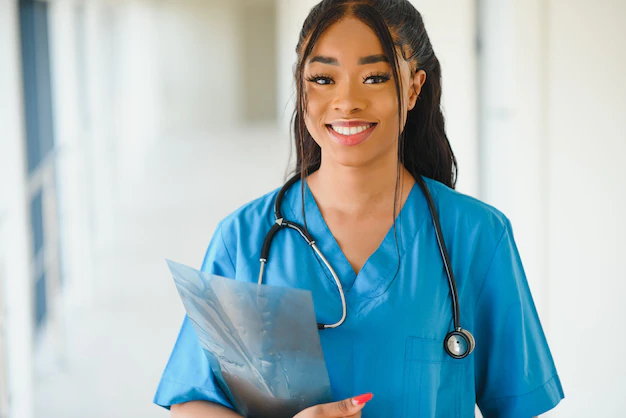Complete Guide: Best Provincial Nominee Programs for Nurses Applying PR in Canada 2025

Complete Guide: Best Provincial Nominee Programs for Nurses Applying PR in Canada 2025
Canada continues to experience a high demand for healthcare professionals, and nurses remain among the most sought-after workers nationwide. While Express Entry is a popular immigration pathway, many internationally educated nurses find better chances of success through Provincial Nominee Programs for Nurses (PNPs).

These programs are designed by individual provinces to meet their specific labor market needs, and in 2025, several provinces are offering dedicated streams to attract qualified nurses who want to secure permanent residency in Canada.
The Provincial Nominee Programs for Nurses give internationally trained professionals a unique advantage because they directly target the healthcare sector. Unlike the general Express Entry system, where competition can be intense and CRS scores unpredictable, PNPs allow provinces such as Ontario, British Columbia, Nova Scotia, and Manitoba to nominate nurses for fast-tracked immigration. Many of these programs do not even require a job offer if the applicant meets the nursing shortage criteria, making them an attractive option for nurses without Canadian work experience.
In this complete guide, we will break down the best PNP options for nurses in 2025, including eligibility requirements, application processes, and the advantages of choosing a provincial nomination over other immigration routes. We will also highlight the provinces most in need of nursing professionals, outline language and credential requirements, and explain how a provincial nomination can add 600 additional CRS points to your Express Entry profile, guaranteeing an Invitation to Apply (ITA).
For internationally educated nurses planning to move to Canada, understanding how to navigate PNPs could be the key to a faster and more secure pathway to permanent residency. This article will provide step-by-step insights into the top provincial programs, giving you a clear roadmap to start your application journey in 2025.
Complete Guide: NOC 3012 Canada PR Requirements for Internationally Educated Nurses 2025
Overview of Provincial Nominee Programs for Nurses
The Provincial Nominee Programs for Nurses are immigration pathways created by Canadian provinces to address local labor shortages in the healthcare sector. Each province and territory in Canada—except Quebec and Nunavut—manages its own PNP streams, which work alongside the federal Express Entry system. For nurses, this is particularly beneficial, as provinces can tailor their programs to meet urgent healthcare demands.
How PNPs Work for Nurses
-
Nomination by Province: If a province identifies a shortage of nurses, it may nominate eligible applicants through its dedicated healthcare or in-demand occupations stream.
-
CRS Points Boost: Receiving a provincial nomination adds 600 Comprehensive Ranking System (CRS) points to your Express Entry profile, almost guaranteeing an Invitation to Apply (ITA) for permanent residency.
-
Flexible Pathways: Some PNPs require a job offer from a Canadian employer, while others allow nurses to apply based on work experience, education, and language skills alone.
Benefits of PNPs for Nurses
-
Targeted Streams: Many provinces create special immigration pathways just for healthcare workers, increasing nurses’ chances of selection.
-
Faster PR Process: PNP nominations often lead to quicker processing times compared to waiting in the general Express Entry pool.
-
Opportunities Across Canada: From Ontario’s Human Capital Priorities Stream to Nova Scotia’s Labour Market Priorities for Healthcare Professionals, nurses can choose the province that best fits their career and lifestyle goals.
For internationally educated nurses, PNPs are not just an alternative to Express Entry—they are often the most reliable route to securing permanent residency in Canada.
Top Provincial Nominee Programs for Nurses in 2025
Nurses remain a top priority in several Canadian provinces due to critical shortages in hospitals, long-term care facilities, and community health centers.
Easy Guide: Canada Permanent Resident Visa for Registered Nurses Without Job Offer 2025
Below are the best PNP options for nurses in 2025, each offering unique pathways to permanent residency.
1. Ontario Immigrant Nominee Program (OINP) – Human Capital Priorities Stream
-
Ontario frequently conducts targeted draws for healthcare professionals, including nurses.
-
Candidates with an active Express Entry profile and nursing experience under NOC 3012 or NOC 31301 are often prioritized.
-
A job offer is not always required, making this a flexible pathway.
2. British Columbia Provincial Nominee Program (BC PNP) – Healthcare Professional Stream
-
BC has a dedicated stream for nurses, midwives, and healthcare workers.
-
Applicants with a job offer from a BC healthcare employer can apply for nomination.
-
BC also operates a Health Authority category, which accepts applications directly through provincial health authorities.
3. Nova Scotia Labour Market Priorities Stream
-
Nova Scotia regularly invites nurses through its targeted healthcare draws.
-
No job offer is required, but candidates must have a valid Express Entry profile and nursing credentials.
-
The province is known for its fast processing and relatively low settlement requirements.
4. Manitoba Provincial Nominee Program (MPNP) – Skilled Worker in Manitoba / In-Demand Occupations
-
Manitoba offers opportunities for internationally educated nurses who have ties to the province (e.g., family, work experience, or education).
-
Nurses are included on Manitoba’s In-Demand Occupations list, making them eligible for faster nomination.
5. Alberta Advantage Immigration Program (AAIP) – Express Entry Stream
-
Alberta often conducts targeted draws for healthcare workers, including registered nurses.
-
A relatively lower CRS score cutoff compared to other provinces makes Alberta an attractive option for many nurses.
-
Job offers are beneficial but not always mandatory.
6. Saskatchewan Immigrant Nominee Program (SINP) – International Skilled Worker: Health Professionals
-
Saskatchewan actively recruits nurses through its healthcare-specific stream.
-
A job offer from a Saskatchewan healthcare employer is usually required.
-
The province has strong support for internationally educated nurses in rural and underserved communities.
7. New Brunswick Provincial Nominee Program (NBPNP) – Healthcare Recruitment
-
New Brunswick frequently hosts nursing recruitment drives internationally.
-
Nurses with language proficiency and experience in acute care or long-term care have strong chances of selection.
Eligibility Requirements for Nurses under PNPs in 2025
While each province has its own criteria, most Provincial Nominee Programs for Nurses share common eligibility requirements.

Meeting these requirements is essential before submitting an application for nomination.
1. Educational Requirements
-
Must hold a nursing degree or diploma from a recognized institution.
-
Internationally educated nurses must complete an Educational Credential Assessment (ECA) to prove equivalency to Canadian standards.
2. Work Experience
-
Minimum of one to two years of recent nursing experience is typically required.
-
Experience should align with recognized nursing NOC codes, such as NOC 3012 (Registered Nurses) or NOC 31301 (Registered Psychiatric Nurses).
3. Language Proficiency
-
Applicants must demonstrate language ability in English or French through:
-
IELTS or CELPIP for English.
-
TEF Canada for French.
-
-
Most PNPs require a minimum CLB 7 for nurses, though higher scores improve CRS ranking.
4. Licensing and Registration
-
While licensing is not mandatory for PR application, candidates must be eligible for registration with a Canadian nursing regulatory body (e.g., CNO, BCCNM, CRNA).
-
Completing the NNAS (National Nursing Assessment Service) application is often the first step.
5. Job Offer (if required)
-
Some provinces (e.g., Saskatchewan, British Columbia) require a valid job offer from a healthcare employer.
-
Others (like Ontario and Nova Scotia) invite nurses without requiring job offers.
6. Settlement Funds
-
Applicants without a valid job offer must show proof of sufficient funds to support themselves and their families after arriving in Canada.
-
The required amount depends on family size and is updated annually by IRCC.
7. Intent to Reside in the Province
-
Candidates must express a genuine intent to live and work in the nominating province, as this is a key condition of PNP approval.
Step-by-Step Application Process for Nurses Applying through PNPs
Applying for permanent residency through Provincial Nominee Programs for Nurses involves several stages. While the exact process varies by province, the following steps provide a clear outline of how nurses can navigate the pathway in 2025:
1. Check Eligibility and Select a Province
-
Review the eligibility criteria of different PNPs.
-
Choose a province that aligns with your qualifications, nursing experience, and long-term settlement goals.
2. Create an Express Entry Profile (if applicable)
-
Many provinces select nurses directly from the Express Entry pool.
-
Ensure your profile is complete with details on education, work experience, and language scores.
3. Gather Required Documents
-
Educational Credential Assessment (ECA) report.
-
Language test results (IELTS/CELPIP or TEF).
-
Nursing degree, transcripts, and proof of work experience.
-
Identity documents (passport, birth certificate).
-
Settlement funds proof (if required).
4. Submit a Provincial Nomination Application
-
Apply directly to the province’s immigration stream for healthcare or in-demand occupations.
-
Some provinces use an Expression of Interest (EOI) system, where you submit your profile and wait for an invitation.
5. Receive Provincial Nomination
-
If selected, you will receive a Provincial Nomination Certificate.
-
If you are in the Express Entry pool, this nomination will automatically add 600 CRS points to your profile, ensuring an Invitation to Apply (ITA).
6. Apply for Permanent Residency
-
With your provincial nomination, submit your application for PR through IRCC.
-
Ensure you include all supporting documents to avoid delays.
7. Wait for Processing and Decision
-
PNP-linked Express Entry applications typically take 6–12 months to process.
-
Paper-based PNP applications may take longer.
8. Prepare for Licensing and Employment
-
While your PR is being processed, you can begin your NNAS application and prepare for licensing with the provincial nursing body.
-
This ensures a smoother transition into the workforce once you arrive.
Advantages of Choosing PNPs Over Express Entry Alone for Nurses
While the Express Entry system is a popular immigration pathway, nurses often face challenges due to high CRS score cutoffs and competition from other skilled workers.

This is where Provincial Nominee Programs for Nurses provide a clear advantage.
1. Targeted Immigration Pathways
-
Many provinces design healthcare-specific streams, making it easier for nurses to be selected.
-
Unlike Express Entry, where nurses compete with all skilled workers, PNPs prioritize healthcare professionals.
2. Lower CRS Score Requirements
-
Express Entry draws often have cutoffs above 480–500 CRS points.
-
In contrast, PNPs may invite nurses with lower scores, since a provincial nomination adds 600 CRS points, guaranteeing an ITA for PR.
3. Job Security and Settlement Support
-
Provinces offering PNPs often connect nominated nurses with healthcare employers, ensuring job opportunities upon arrival.
-
Some provinces provide settlement services, such as language training, housing support, and integration programs for healthcare workers.
4. Options Without a Job Offer
-
Express Entry applicants benefit from extra CRS points for job offers, but it is not always easy for nurses abroad to secure one.
-
PNPs in provinces like Ontario and Nova Scotia allow nurses to apply without a job offer, making the pathway more accessible.
5. Faster Processing Times
-
PNP nominations linked to Express Entry can speed up immigration processing, often resulting in PR approval within 6–12 months.
-
This is faster than some paper-based immigration routes.
6. Better Chances of Long-Term Success
-
By applying through PNPs, nurses choose provinces where their skills are most in demand.
-
This improves employment stability, career growth, and chances of long-term settlement in Canada.
In short, while Express Entry remains valuable, PNPs provide nurses with a more reliable and often faster route to permanent residency in Canada.
Proven Guidelines: How to Prepare for CELBAN Speaking in Canada (2025)
Challenges and Considerations for Nurses Applying Through PNPs
While Provincial Nominee Programs for Nurses offer clear advantages, applicants must also understand the challenges and factors that may affect their application. Being aware of these considerations helps in better planning and improving chances of success.
1. Provincial Commitment Requirements
-
Nurses who apply through PNPs must usually live and work in the nominating province for a certain period.
-
Moving to another province immediately after obtaining PR may negatively affect future immigration applications.
2. Varying Eligibility Rules
-
Each province sets its own eligibility criteria, including education, work experience, and language proficiency.
-
What works in Ontario may not be acceptable in British Columbia or Manitoba, so nurses must carefully review requirements before applying.
3. Competition for Limited Spots
-
Some PNP streams for healthcare professionals fill up quickly due to high demand.
-
Missing deadlines or submitting incomplete applications can result in losing the chance until the next intake.
4. Job Offer Challenges
-
Certain PNPs require a valid job offer from a Canadian employer, which can be difficult to secure from overseas.
-
Applicants may need to use job portals, recruitment agencies, or provincial healthcare recruitment drives to connect with employers.
5. Document Verification and Licensing
-
Nurses must complete credential verification through bodies like NNAS (National Nursing Assessment Service) before applying for licensure.
-
Delays in document verification can slow down the PNP process.
6. Financial Costs
-
Application fees, credential verification, language tests (IELTS/CELPIP), and settlement costs can add up.
-
Nurses should budget carefully and plan for both immigration and settlement expenses.
7. Adaptation to Provincial Needs
-
Some provinces may prioritize rural or underserved areas, requiring nurses to work outside major cities initially.
-
This can be a challenge for applicants who prefer larger urban centers.
Despite these challenges, with proper planning, preparation, and timely application, PNPs remain one of the most practical and achievable routes for nurses aiming for Canadian PR in 2025.
Challenges and Considerations for Nurses Applying Through PNPs
While Provincial Nominee Programs for Nurses offer clear advantages, applicants must also understand the challenges and factors that may affect their application.

Being aware of these considerations helps in better planning and improving chances of success.
1. Provincial Commitment Requirements
-
Nurses who apply through PNPs must usually live and work in the nominating province for a certain period.
-
Moving to another province immediately after obtaining PR may negatively affect future immigration applications.
2. Varying Eligibility Rules
-
Each province sets its own eligibility criteria, including education, work experience, and language proficiency.
-
What works in Ontario may not be acceptable in British Columbia or Manitoba, so nurses must carefully review requirements before applying.
3. Competition for Limited Spots
-
Some PNP streams for healthcare professionals fill up quickly due to high demand.
-
Missing deadlines or submitting incomplete applications can result in losing the chance until the next intake.
4. Job Offer Challenges
-
Certain PNPs require a valid job offer from a Canadian employer, which can be difficult to secure from overseas.
-
Applicants may need to use job portals, recruitment agencies, or provincial healthcare recruitment drives to connect with employers.
5. Document Verification and Licensing
-
Nurses must complete credential verification through bodies like NNAS (National Nursing Assessment Service) before applying for licensure.
-
Delays in document verification can slow down the PNP process.
6. Financial Costs
-
Application fees, credential verification, language tests (IELTS/CELPIP), and settlement costs can add up.
-
Nurses should budget carefully and plan for both immigration and settlement expenses.
7. Adaptation to Provincial Needs
-
Some provinces may prioritize rural or underserved areas, requiring nurses to work outside major cities initially.
-
This can be a challenge for applicants who prefer larger urban centers.
Despite these challenges, with proper planning, preparation, and timely application, PNPs remain one of the most practical and achievable routes for nurses aiming for Canadian PR in 2025.
Processing Times and PR Approval Success Rates for Nurses under PNPs
When applying through Provincial Nominee Programs for Nurses, understanding timelines and approval chances is critical for effective planning.
Processing Times
-
Provincial Nominee Stage:
-
Most provinces process nurse-specific applications within 2 to 6 months, depending on demand and completeness of the application.
-
-
Federal Permanent Residency Stage (IRCC):
-
After receiving a provincial nomination, the federal PR application generally takes 6 to 12 months to finalize.
-
-
Total Timeline:
-
Nurses can expect the entire process, from provincial application to PR approval, to take around 8 to 18 months on average.
-
Approval Success Rates
-
High Demand for Nurses: Because Canada faces an ongoing shortage of healthcare workers, nurses have some of the highest approval rates among skilled workers.
-
PNP Nominations: A provincial nomination almost guarantees PR success, as it adds 600 CRS points in Express Entry.
-
Eligibility Factors: Success rates improve significantly if applicants:
-
Meet the language requirement (CLB 7+).
-
Provide complete and verified documentation.
-
Apply to provinces actively seeking healthcare workers.
-
Province-Specific Observations
-
Ontario & British Columbia: High success rates for nurses with work experience and language proficiency.
-
Nova Scotia & Manitoba: Often conduct targeted draws exclusively for healthcare professionals, leading to faster approvals.
-
Alberta & Saskatchewan: Slightly longer wait times, but strong acceptance for in-demand nurses.
Key Takeaway
Nurses applying through PNPs enjoy faster processing and higher chances of approval compared to many other occupations. With healthcare consistently being a top priority in Canada’s immigration policies, 2025 is expected to be one of the best years for nurses seeking PR through provincial programs.
Challenges Nurses May Face When Applying Through PNPs (and How to Overcome Them)
While Provincial Nominee Programs for Nurses provide a faster and more targeted path to Canadian PR, applicants may encounter certain challenges. Being aware of these issues and taking proactive steps can significantly improve the chances of a successful application.
1. Provincial Commitment Requirements
-
Challenge: Many provinces require nominees to live and work in the province for a specific period after PR.
-
Solution: Choose a province where you plan to settle long-term. Be prepared to work in smaller cities or rural areas if required.
2. Strict Eligibility Criteria
-
Challenge: Each PNP has unique rules for work experience, education, and language proficiency.
-
Solution: Carefully review provincial requirements and ensure all documents meet the standards before applying.
3. Job Offer Requirements
-
Challenge: Some PNP streams require a valid job offer from a Canadian employer, which can be difficult to secure from overseas.
-
Solution: Utilize provincial job portals, connect with healthcare recruiters, and participate in virtual recruitment drives.
4. Document Verification Delays
-
Challenge: Credential assessments, language tests, and police certificates can take time. Delays can affect PNP application timelines.
-
Solution: Start the NNAS credential evaluation early, schedule language tests in advance, and gather all supporting documents ahead of time.
5. Limited Intake and Competition
-
Challenge: Targeted healthcare streams can fill quickly, leaving many eligible nurses waiting for the next intake.
-
Solution: Submit your application promptly and consider applying to multiple provinces if eligible.
6. Financial Costs
-
Challenge: Expenses include application fees, credential verification, language tests, and settlement funds.
-
Solution: Plan a detailed budget, and consider cost-saving options for document preparation and testing.
7. Licensing and Registration
-
Challenge: PR does not automatically grant the right to practice nursing in Canada; licensing exams are required.
-
Solution: Begin the NNAS process during PR application to save time, and prepare for the NCLEX-RN or provincial registration exam.
By understanding these challenges and preparing accordingly, internationally educated nurses can maximize their chances of success and navigate the PNP pathway smoothly.
Conclusion
For internationally educated nurses, Provincial Nominee Programs for Nurses in 2025 offer one of the most strategic and efficient pathways to Canadian permanent residency. By targeting provinces with high demand for healthcare professionals, nurses can benefit from lower competition, faster processing times, and the added advantage of 600 CRS points when applying through Express Entry-linked PNPs.
Choosing a provincial stream not only increases the likelihood of securing PR but also provides a clear roadmap for long-term settlement and career growth in Canada’s healthcare system. From Ontario’s Human Capital Priorities Stream to Nova Scotia’s Labour Market Priorities and British Columbia’s Healthcare Professional Stream, each PNP offers unique opportunities tailored for nurses.
Internationally educated nurses should ensure that they meet provincial eligibility criteria, complete credential assessments through NNAS, achieve the required language proficiency, and prepare all necessary documentation before applying. Planning carefully and applying to multiple suitable provinces can further increase the chances of success.
Canada’s demand for qualified nurses continues to grow, making 2025 an ideal year to pursue PR through a provincial nomination. By leveraging the targeted programs, nurses can secure permanent residency, advance their careers, and enjoy the benefits of living and working in one of the world’s most stable and healthcare-driven countries.
Next Steps for Nurses
-
Determine the most suitable province for your skills and goals.
-
Complete NNAS credential verification and language testing.
-
Submit your provincial nomination application promptly.
-
Prepare for permanent residency and professional licensing.
-
Plan for settlement, employment, and career growth in Canada.
Taking these steps now can help internationally educated nurses successfully navigate Provincial Nominee Programs for Nurses and achieve their goal of permanent residency in Canada in 2025.
Resources for Provincial Nominee Programs for Nurses
To help internationally educated nurses navigate Provincial Nominee Programs for Nurses in Canada, the following official resources provide accurate and up-to-date information:
-
Immigration, Refugees and Citizenship Canada (IRCC) – Official government portal for Express Entry, PR applications, and PNP information.
https://www.canada.ca/en/immigration-refugees-citizenship.html -
National Nursing Assessment Service (NNAS) – Credential verification service for internationally educated nurses.
https://www.nnas.ca/ -
Ontario Immigrant Nominee Program (OINP) – Human Capital Priorities and Healthcare Streams.
https://www.ontario.ca/page/ontario-immigrant-nominee-program-oinp -
British Columbia Provincial Nominee Program (BC PNP) – Healthcare Professional Stream
https://www.welcomebc.ca/Immigrate-to-B-C/BC-PNP-Healthcare-Professional-Stream -
Nova Scotia Labour Market Priorities Stream – Healthcare Professionals
https://novascotiaimmigration.com/move-here/nova-scotia-nominee-program/ -
Manitoba Provincial Nominee Program (MPNP) – In-Demand Occupations
https://immigratemanitoba.com/



2 Comments